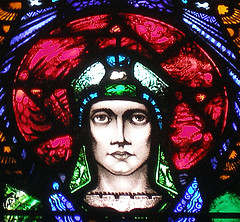Solved exercises
 |
| By Niall McAuley, C. Commons |
As we have learned in this topic, St. Patrick's Day is celebrated on the 17th of March, which is the anniversary of the death of the Patron Saint of Ireland. Let's learn a bit about the history of this important day for Irish people all over the world.
Traditionally, Irish people would go to church in the morning and they would celebrate this day in the afternoon. Because this day always falls on Lent, they were not allowed to eat meat, but they could dance, drink and eat Irish bacon and cabbage. Nowadays corned beef and cabbage is a traditional St. Patrick's Day dish.
Another tradition, St. Patrick's Day Parade, was started in the United States by Irish soldiers. The first one took place in New York, contributing to the flourishing of Irish patriotism among immigrants during the following years. Thus different groups and societies would hold parades every year, with bagpipes and drums.
Today, it is celebrated by people all over the world. In Ireland, it has always been a religious occasion and, until the 1970's, pubs were closed on that day. Later, the government had the idea of using this day as an opportunity to promote tourism and, today, St. Patrick's Day is a mass celebration in Dublin with parades, concerts, fireworks and pubs full of people celebrating it.
If you ever go to Dublin on St. Patrick's Day, you will experience this great celebration! Paco would like his friends to experience it and he will surely recommend it to everyone!
Verdadero Falso
Verdadero Falso
Verdadero Falso
Verdadero Falso
First conditional sentences
Complete the sentences with the appropriate form of the verbs in brackets:
1. If you (want), I (show) you my new car.
2. If we (go) to the cinema, we (watch) a good film.
3. If the sun (shine), we (not stay) at home.
4. If he (be) ill, he (see) the doctor.
5. If we (earn) a lot of money, we (travel) to New York.
Complete with 'if' or 'unless':
1. they have permission, they won't go to the disco.
2. they go to the disco, they'll dance all night.
3. they have a good time, they'll be happy.
4. something wrong happens, they'll enjoy the night.
These are the examples with 'would' that we have in the reading text:
- Traditionally, Irish people would go to church in the morning and they would celebrate this day in the afternoon.
- Thus different groups and societies would hold parades every year, with bagpipes and drums.
- Paco would like his friends to experience it and he will surely recommend it to everyone!
Are they examples of...
- Past of 'will'?
- Expressing preferences?
- Conditional sentences?
- Repetition in the past?
- Polite requests?